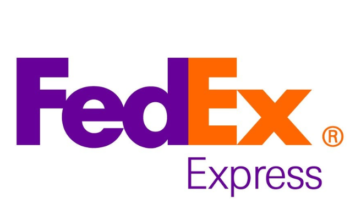Writing a book is an enormous achievement, but getting it published is an entirely different challenge. Finding the right publisher for your book can be daunting, but with careful research, consideration, and perseverance, you can navigate the publishing world successfully. Here’s a comprehensive guide to help you find the perfect publisher for your work.
1. Understand Your Publishing Options
Before you start searching for a publisher, it’s essential to understand the different types of publishing available:
- Traditional Publishing: In this model, the publisher takes care of all the publishing processes, including editing, design, printing, distribution, and marketing. In return, they take a significant share of the book’s profits. Traditional publishers typically pay authors an advance and royalties.
- Self-Publishing: Here, the author handles the entire publishing process or hires professionals to do it. Self-publishing allows for complete creative control, but the author bears all costs and responsibilities.
- Hybrid Publishing: Hybrid publishers offer a combination of traditional and book publishing services. They provide some of the services of traditional publishers, like editing and distribution, but require the author to cover part of the costs. In return, authors retain more of their royalties.
2. Identify Your Book’s Genre and Audience
Knowing your book’s genre and target audience is crucial in finding the right publisher. Publishers specialize in specific genres, such as fiction, non-fiction, children’s books, or academic texts. Make sure to research publishers who have a track record of successfully publishing books in your genre.
3. Research Potential Publishers
Once you’ve identified your book’s genre, start researching potential publishers:
- Look at Books Similar to Yours: Identify successful books in your genre and find out who published them. This can give you a good starting point for your search.
- Use Publishing Databases: Resources like Writer’s Market, Duotrope, and Publishers Marketplace offer extensive lists of publishers along with submission guidelines and contact information.
- Visit Publisher Websites: Visit the websites of potential publishers to understand their submission guidelines, recent publications, and editorial focus. This will help you determine if your book aligns with their catalog.
4. Review Submission Guidelines Carefully
Each publisher has specific submission guidelines that must be followed precisely. These guidelines often include instructions on how to format your manuscript, what to include in your query letter, and whether to submit your work via email or a submission platform.
Ignoring these guidelines can result in an automatic rejection, so be meticulous in your preparations.
5. Prepare a Strong Query Letter
Your query letter is your first introduction to a publisher, so it needs to be compelling and professional. A well-crafted query letter should include:
- A Brief Introduction: Mention the title of your book, its genre, and word count.
- A Synopsis of Your Book: Provide a concise summary that highlights the main plot points, themes, and unique aspects of your book.
- Author Bio: Include relevant information about your writing background, previous publications, and why you’re the right person to write this book.
- Why You Chose This Publisher: Explain why you believe your book is a good fit for the publisher based on their catalog and editorial focus.
6. Consider Literary Agents
If you’re aiming for a traditional publishing deal with a well-established publisher, you might want to consider getting a literary agent. Agents have industry connections and can help negotiate contracts, secure better deals, and guide you through the publishing process. However, agents typically take a commission, usually around 15%, from the author’s earnings.
7. Be Wary of Vanity Publishers
Vanity publishers are companies that charge authors to publish their books. Unlike hybrid publishers, vanity publishers often offer little in the way of marketing or distribution, leaving authors with minimal support after paying hefty fees. Be cautious and research thoroughly before committing to any publishing deal that requires upfront payment.
8. Evaluate Publisher Contracts Carefully
If a publisher is interested in your manuscript, they will offer you a contract. This is a legally binding document, so it’s crucial to review it carefully. Key aspects to consider include:
- Rights: Understand what rights you’re granting the publisher, such as digital, print, and translation rights.
- Royalties: Clarify how royalties will be calculated and paid.
- Advance: If applicable, make sure the advance payment terms are clearly defined.
- Publication Schedule: Ensure there’s a clear timeline for editing, production, and release of your book.
It’s advisable to have a lawyer or a literary agent review the contract to protect your interests.
9. Don’t Rush the Process
Finding the right publisher can take time. It’s important not to rush the process or settle for the first offer you receive, especially if it doesn’t feel like the right fit. A successful publishing partnership is built on mutual respect and shared vision, so take the time to find a publisher who genuinely believes in your work.
10. Stay Persistent and Open to Feedback
Rejections are a part of the publishing journey, even for experienced authors. Don’t be discouraged if your manuscript is turned down multiple times. Use any feedback you receive to improve your manuscript and keep submitting it to other publishers.
Persistence is key, and with time, you will find the right publisher who understands and appreciates your work.
FAQs
1. How do I know if a publisher is legitimate?
To determine if a publisher is legitimate, research their history and reputation. Look for reviews or testimonials from other authors, check if they have a credible online presence, and ensure they don’t ask for upfront payments unless they’re a hybrid publisher with clear terms. Be wary of vanity publishers who charge high fees with little return on investment.
2. Should I consider self-publishing instead of finding a traditional publisher?
Self-publishing offers complete creative control and potentially higher royalties, but it also requires significant investment in terms of time, effort, and money. If you’re willing to take on these responsibilities and want to retain full ownership of your work, self-publishing can be a viable option. However, if you prefer to focus on writing and leave the publishing process to professionals, traditional or hybrid publishing may be a better fit.
Conclusion
Finding the right publisher for your book is a crucial step in your journey as an author. By understanding your options, researching thoroughly, preparing a strong submission, and staying persistent, you can find a publishing partner who will help bring your book to life. Whether you choose traditional publishing, self-publishing, or something in between, the key is to find a path that aligns with your goals and vision as a writer.



